Air Canada has been transporting passengers around the world for 80 years, and our history as innovators dates back just as long.
In fact, you could say Air Canada is an 80-year-old startup, based on the rate of consistent innovation at the airline.
And many of the firsts Air Canada helped spearhead are now industry standards that improve the lives of our passengers and crews and ensure safety while in flight.
“Transformation best describes our journey, our culture, and our future,” says Air Canada CEO Calin Rovinescu. “We are in the middle of a major transformation with our reservation system – which I often compare to the intricacies of open-heart surgery and a lung transplant. And next year we will roll out our new loyalty program, which we believe will be among the best in the world. Just as important is our work on ensuring we are ‘Big Data’ ready so we can take advantage of the technologies of the future and become the Artificial Intelligence (AI) employer of choice in Canada. Our plan is to be one of the most proactive and ambitious participants in Big Data and AI adoption in Canada.”
Transformation best describes our journey, our culture and our future
– Air Canada CEO Calin Rovinescu
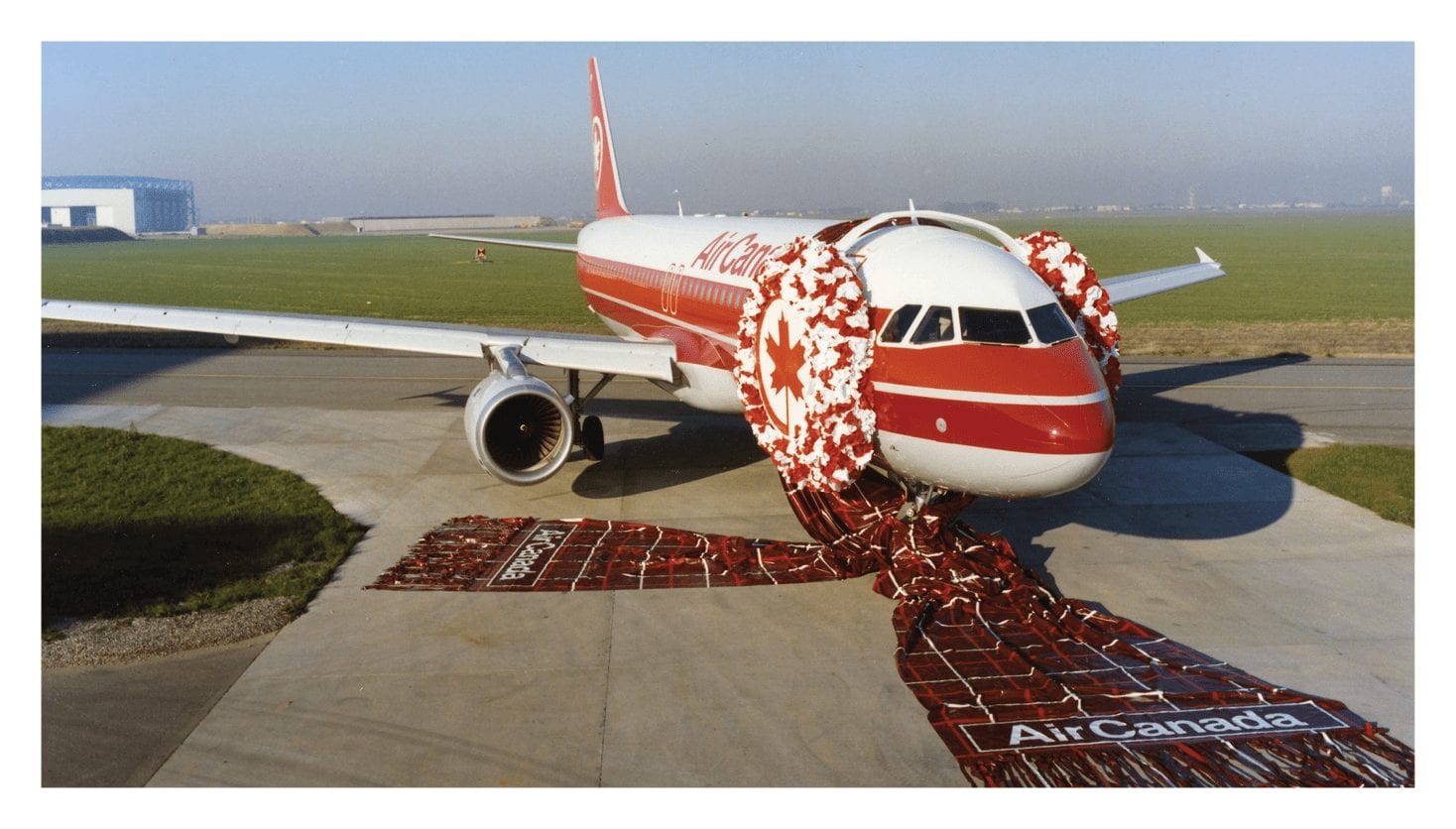
Le premier Airbus A320, livré à Air Canada en 1990
The culture of constant innovation at Air Canada (known as Trans-Canada Air Lines until 1965) dates back to its founding, to the days of unpressurized aircraft when, in 1939, we were one of the first to have the entire fleet of unpressurized aircraft equipped with fixed oxygen systems for use by flight crew and passengers.
Also in 1939, Air Canada was the first airline to equip its fleet – beginning with the Lockheed 1408 and 1808 aircraft – with alcohol de-icing nozzles ahead of the windscreen to obtain de-icing coverage of the complete windscreen.
On April 1, 1960, Air Canada was the first airline to use the jet engine in civil operation with the introduction of DC-8 service on the transcontinental Montreal-Vancouver route.
Then in 1965, we helped develop the multi-channel flight recorder – or the black box. Working with Royston Instruments, this game-changing black box was installed on Air Canada’s DC-8 and Vanguard aircraft.
Air Canada has also been a pioneer for the use of computer systems and the Internet for its business.
In 1963, we introduced the world’s first computerized reservations system, and in 2019 and 2020, Air Canada will be rolling out an entirely new reservation system that will revolutionize the way our airline operates.
Other notable technology-related firsts include becoming the first airline in Canada to introduce e-tickets in 1995, the introduction of self-service Express Check-in Kiosks in 1999, and in 2009, Air Canada became the first North American airline to release mobile applications for Apple and Blackberry devices. This technology allowed travelers to retrieve electronic boarding passes, track flight information in real-time, receive notification of itinerary changes and more.
Boeing 777-300ER
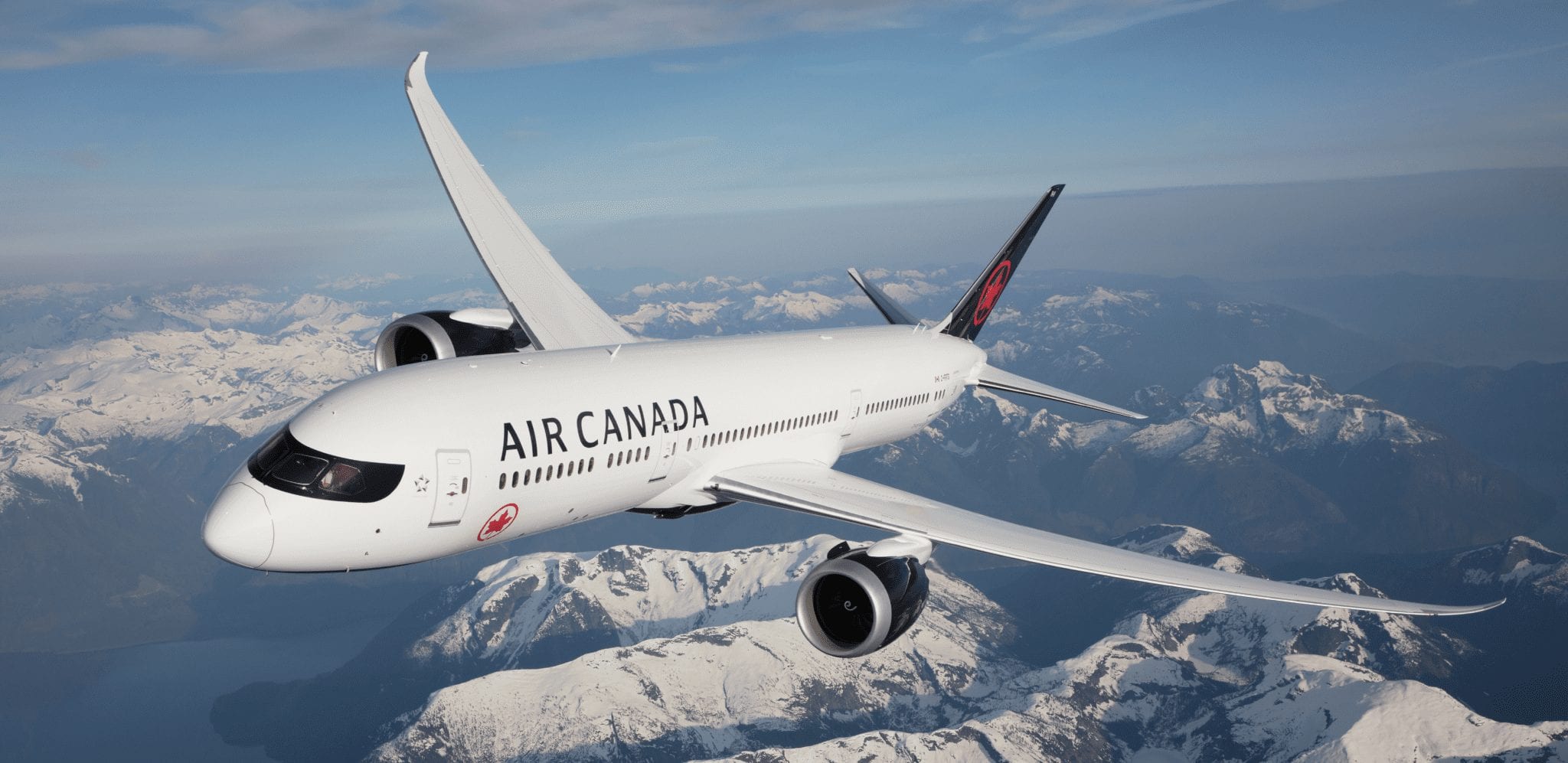
Air Canada is also innovating to become a greener airline. Not only does our fleet modernization plan provide more efficient aircraft, we are also taking part in the Biofuel Supply Chain Initiative, and we were the first airline in the world to voluntarily join the World Bank’s IMF Carbon Pricing Leadership Coalition. In recognition of these and other efforts, we were named the 2018 Eco-Airline of the Year at the Air Transport World (ATW) 44th Annual Airline Industry Achievement Awards. All these firsts have helped Air Canada become one of the world’s leading airlines, recognized by Skytrax in 2018 as the Best Airline in North America for the second consecutive year and seventh time in nine years.
Key to Air Canada’s success as an innovator is the company’s deliberate strategy to recruit diverse talent that brings new ideas and perspectives to the organization. Our commitment to diversity has earned AC the distinction of being named one of Canada’s Best Diversity Employers for 2018, recognizing our Diversity Committees, Women in Aviation speaker series and Women of Air Canada Maintenance (ACM) program. In addition, the airline is also recognized as one of Canada’s top 100 employers in 2019, for the sixth consecutive year.
We pride ourselves on taking care of our customers, but also their furry friends. Air Canada is the first airline in the world to be certified by the International Air Transport Association (IATA) for CEIV Live Animals transportation, meaning we operate to the highest standards when it comes to transporting animals.
With our modern fleet, including the Boeing 787 Dreamliner, Boeing 777 and Airbus A330, our passengers travel in style nearly everywhere they go. And in 2020, we will become the first Canadian airline to operate the Airbus A220-300 (known as the Bombardier CSeries when we announced our purchase), which will further enhance our customer offering through a modern narrow-body aircraft with a state-of-the-art interior while also being more fuel-efficient than the aircraft it will replace.
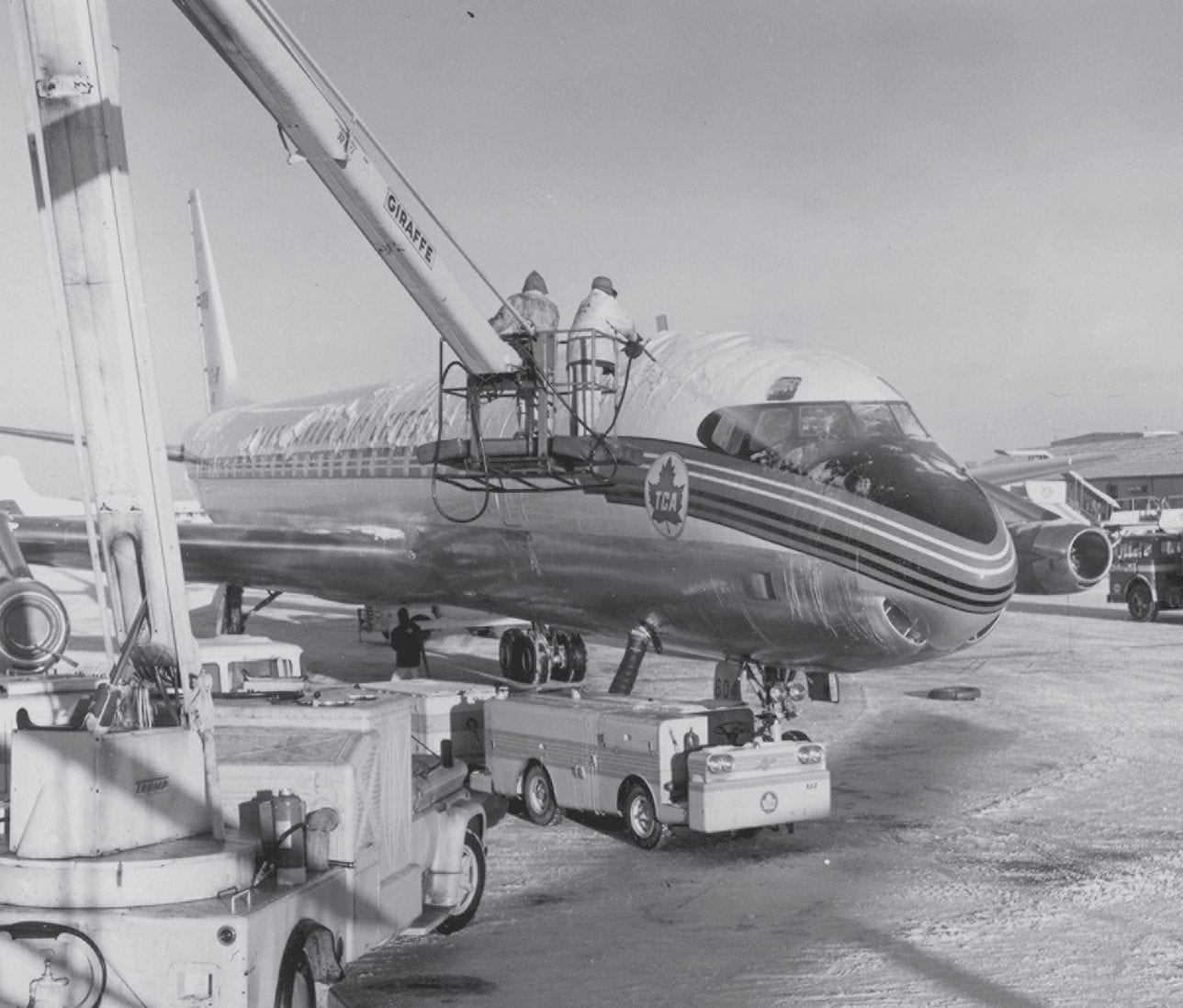
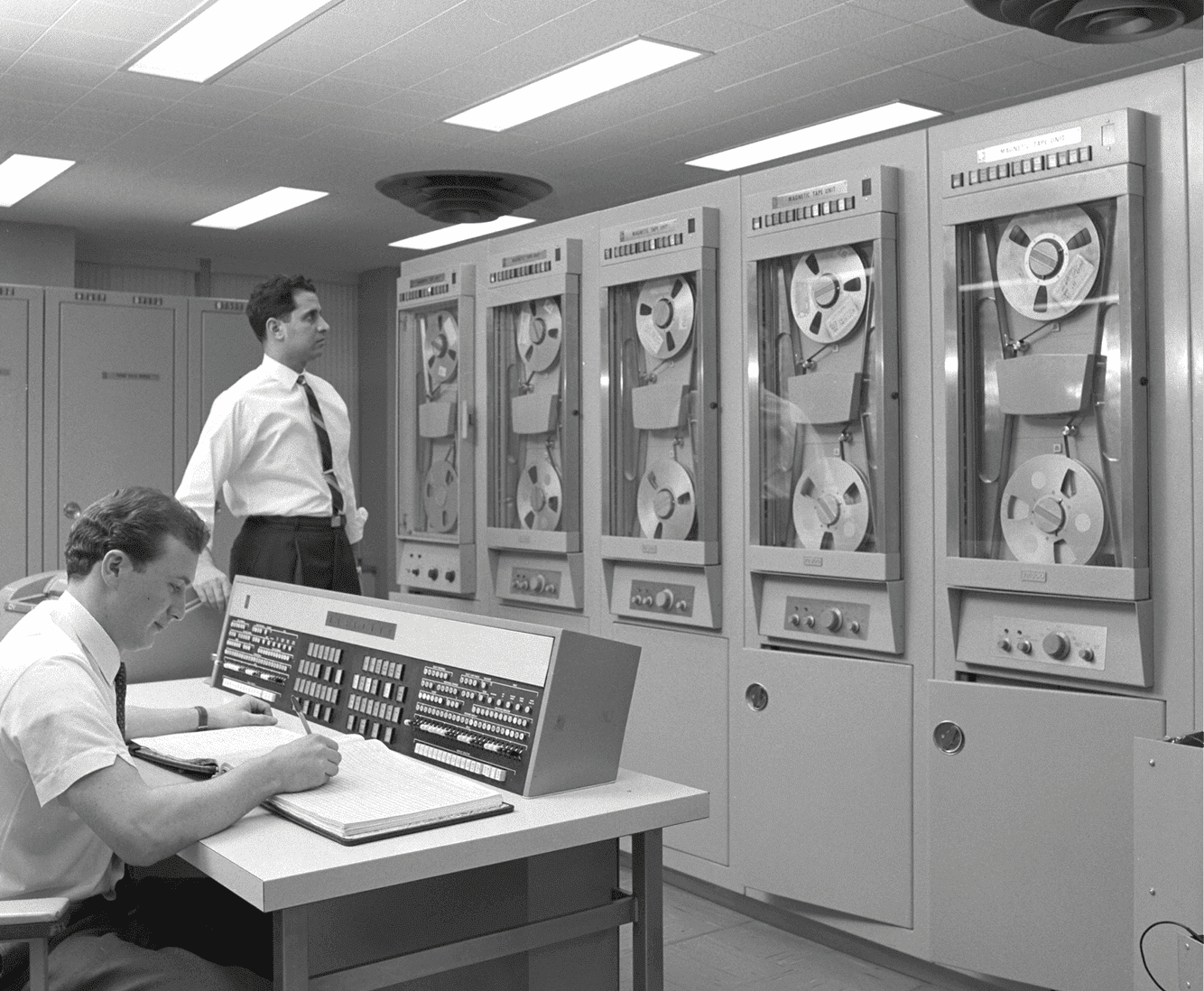
“We are nearing the completion of the transformation of our fleet into one of the youngest and most modern fleets in North America. The A220s (formerly known as the Bombardier C-Series) will help strengthen and optimize our network within North America, and will give us a distinct competitive edge in the marketplace,” Mr. Rovinescu says.
In 2018, we helped more than 50 million passengers travel the world for experiences and memories that will last a lifetime. And through Air Canada Vacations, we create exclusive experiences for vacationers looking for exciting trips in Canada and abroad.
While customers see this care and class every time they book and fly with us, Air Canada continues to work diligently behind the scenes on the next innovation.
The new reservation and loyalty solutions will be rolled out in 2019 and 2020. These complex operations systems and processes have a team of dedicated professionals working diligently to modernize the way we work. The transition will be seamless for our passengers, but many of our employees will also benefit from more efficient work tools, which will better the customer experience.
Air Canada is also working on artificial intelligence programs that will make us a more efficient airline and improve customer experience. For example, some of the artificial intelligence initiatives involve better weather impact simulation, which will assist our Systems Operations Control centre in managing the day-to-day operations and empower them to be more proactive in terms of rescheduling flights when bad weather is on the way.
Air Canada is also a member of the Innovation Superclusters Initiative through SCALE AI in Montreal. This supercluster is dedicated to building the next generation of supply chain management and improving performance for Canadian businesses through the use of artificial intelligence technologies.
Air Canada believes artificial intelligence must become a core capability of the airline and we are striving to become a global leader for AI within the airline industry.
In 2019, Air Canada Cargo will begin to leverage artificial intelligence to optimize capacity management and ensure all customer’s cargo is delivered safely and securely. The new system will allow our cargo division to better optimize how it packs pallets that are loaded onto aircraft, as well as automate the invoicing and auditing functions of the business.
Several other projects are under consideration at Air Canada, from optimizing baggage handling to, providing better prediction for flight delays, all with the end goal of providing an outstanding customer experience.
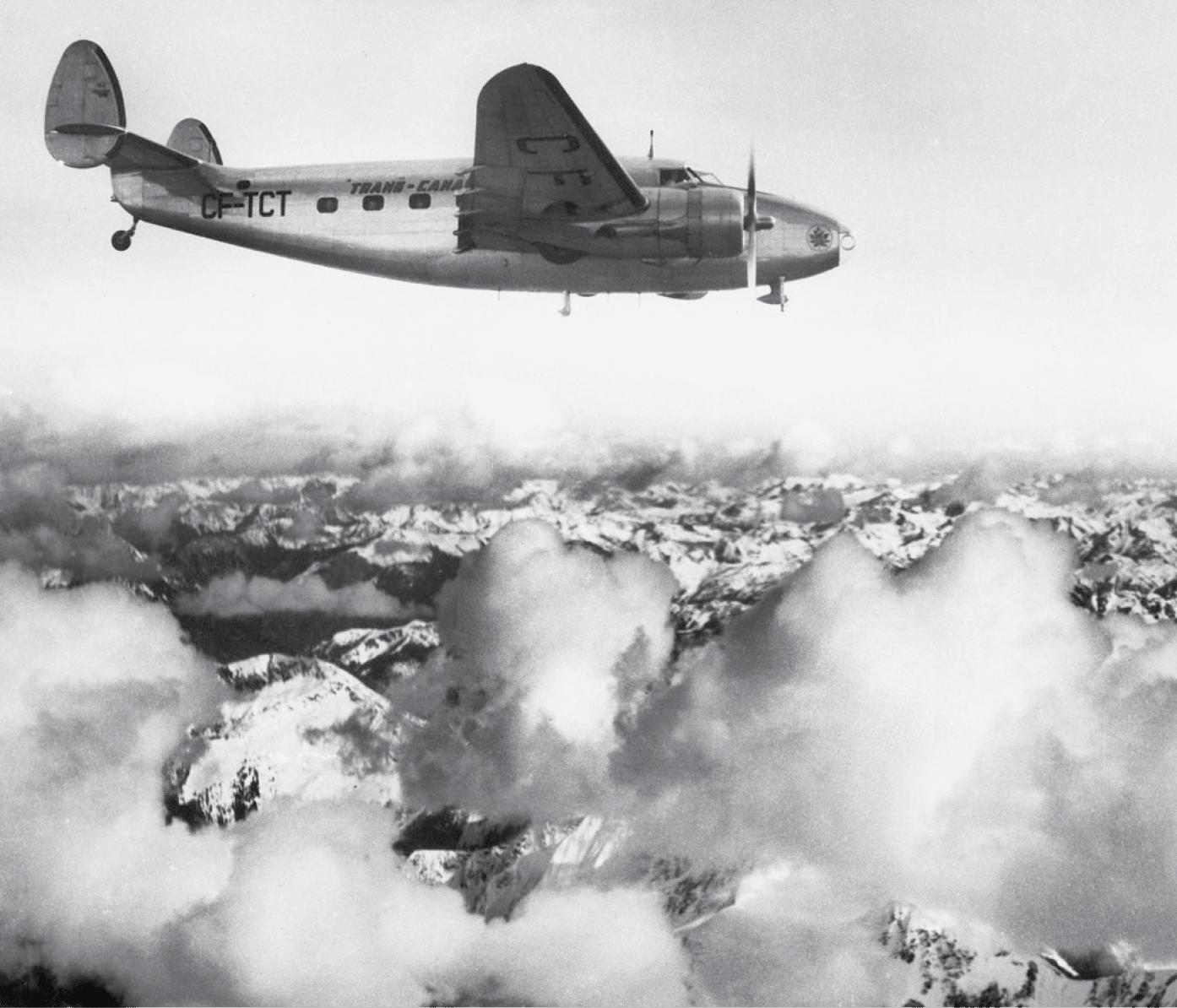
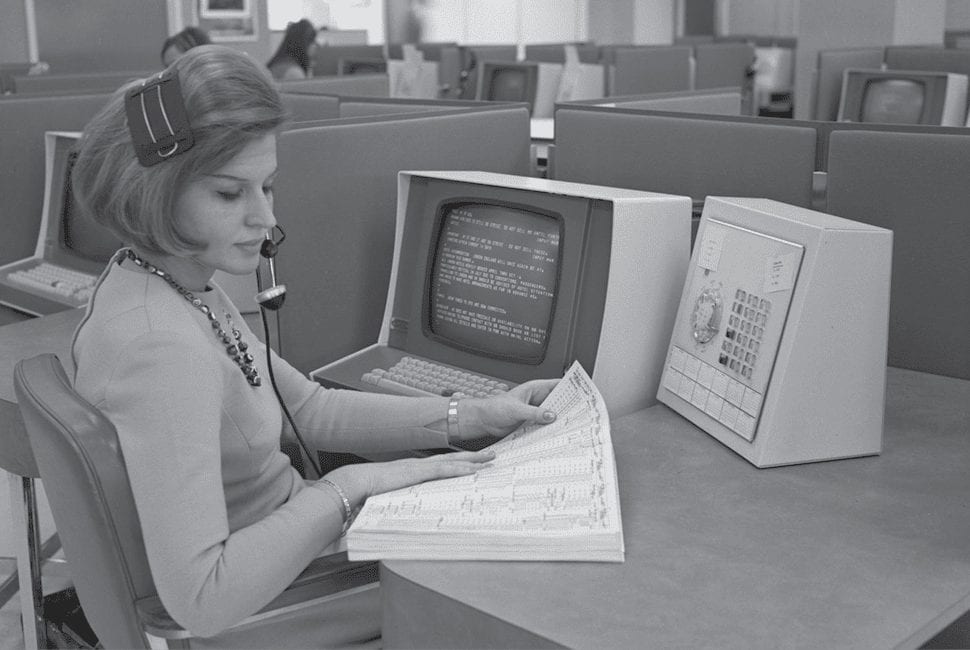
Ce qui décrit le mieux notre parcours, notre culture et notre avenir, c’est la transformation
– Calin Rovinescu, chef de la direction d’Air Canada
French:
Air Canada transporte des passagers partout dans le monde depuis 80 ans et elle fait preuve d’innovation depuis tout aussi longtemps.
En fait, nous apportons des innovations avec une telle constance que nous pouvons dire que nous sommes une jeune entreprise de 80 ans!
Et bon nombre des premières auxquelles nous avons contribué constituent aujourd’hui des normes de l’industrie qui améliorent la vie de nos passagers et de nos équipages, tout en assurant la sécurité des vols.
« Ce qui décrit le mieux notre parcours, notre culture et notre avenir, c’est la transformation, souligne Calin Rovinescu, chef de la direction d’Air Canada. Nous procédons actuellement à une profonde transformation de notre système de réservations, dont je compare souvent la complexité à une chirurgie à cœur ouvert ou à une transplantation pulmonaire. Et l’an prochain, nous lancerons notre nouveau programme de fidélisation, qui, selon nous, sera l’un des meilleurs du monde. Par ailleurs, et cela est tout aussi important, nous déployons des efforts afin d’être en mesure d’utiliser les mégadonnées pour tirer profit des technologies d’avenir et devenir un employeur de choix au Canada dans le domaine de l’intelligence artificielle. Notre objectif est de compter parmi les acteurs les plus proactifs et les plus ambitieux dans l’utilisation des mégadonnées et l’adoption de l’intelligence artificielle au Canada. »
La culture d’innovation constante qui règne à Air Canada (connue sous les appellations Lignes aériennes Trans-Canada et TCA jusqu’en 1965) remonte à la création de l’entreprise, à une époque où les appareils n’étaient pas pressurisés. En effet, en 1939, nous avons été l’une des premières sociétés aériennes à équiper tous ses avions non pressurisés d’un circuit d’oxygène fixe, à l’usage du personnel navigant et des passagers.
Également en 1939, Air Canada a été la première société aérienne à doter son parc complet, à commencer par les Lockheed 1408 et 1808, de buses pour le dégivrage à l’alcool du pare-brise entier.
Le 1er avril 1960, nous avons été le premier transporteur aérien à utiliser le turboréacteur dans l’aviation civile, en mettant en service le DC-8 sur la ligne transcontinentale Montréal–Vancouver.
Puis, en 1965, nous avons contribué à la mise au point de l’enregistreur de vol multicanal, surnommé « boîte noire ». Conçu de concert avec Royston Instruments, ce dispositif révolutionnaire a été installé dans nos appareils DC-8 et Vanguard.
En outre, nous avons fait figure de pionniers en recourant aux systèmes informatiques et à Internet dans notre exploitation.
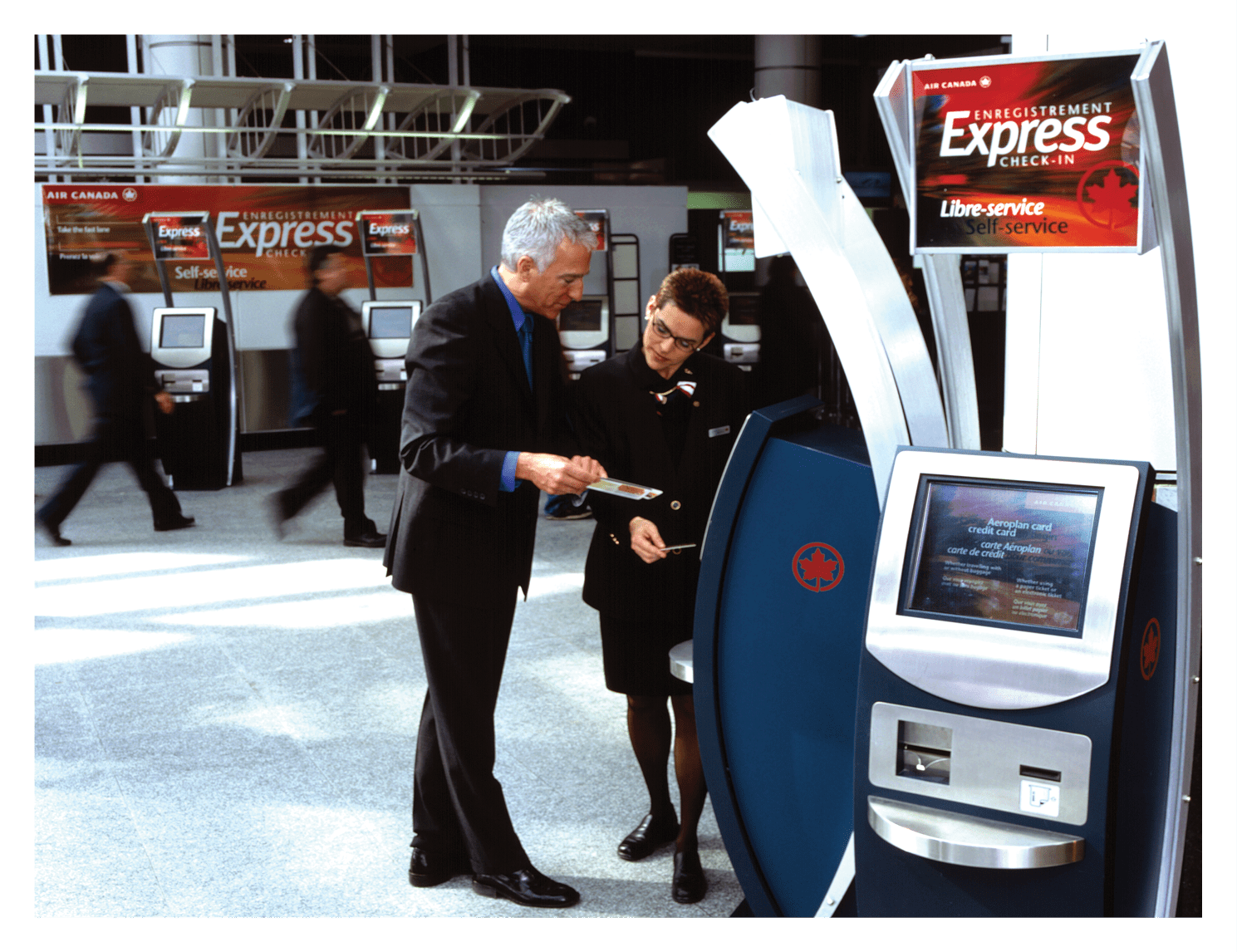
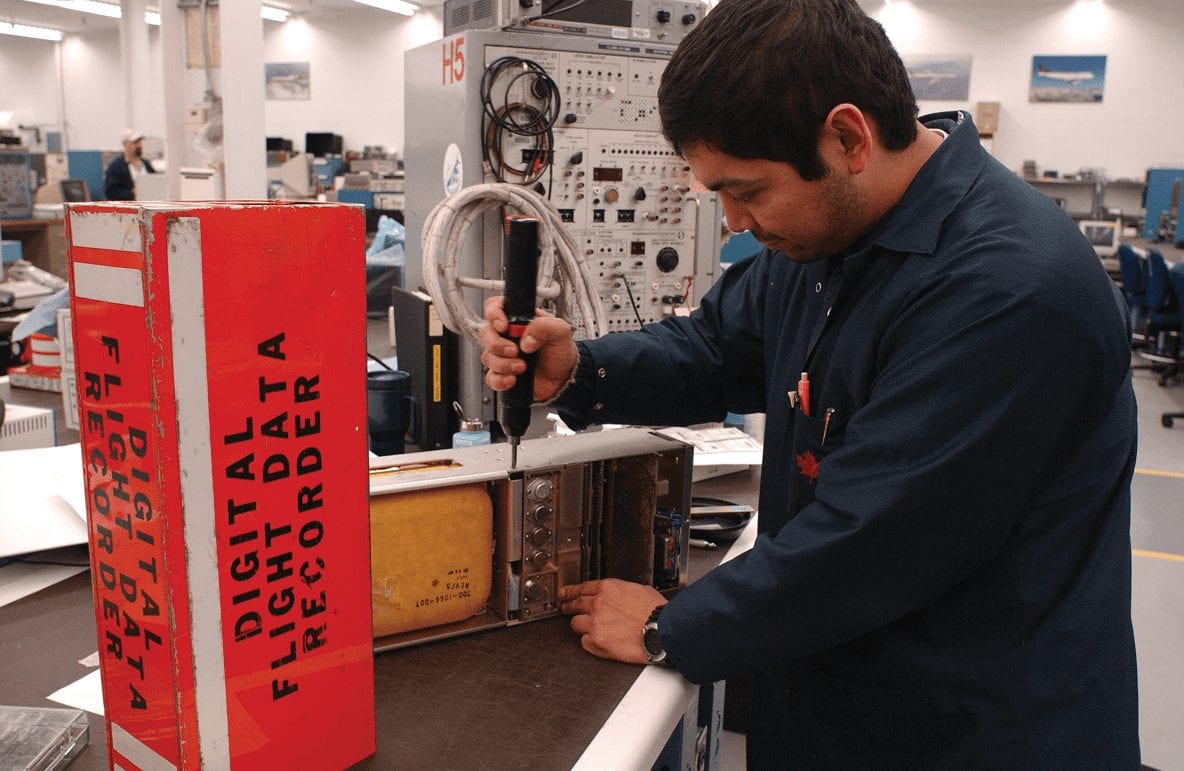
En 1963, nous avons lancé le premier système informatisé de réservations au monde et, en 2019 et en 2020, nous mettrons en œuvre un tout nouveau système de réservations qui changera du tout au tout la façon dont nous menons nos activités.
Nous sommes à l’origine d’autres premières technologiques dignes de mention, notamment : premier transporteur aérien du Canada à mettre en place la billetterie électronique (1995); lancement de la borne libre-service Enregistrement Express (1999); et première société aérienne en Amérique du Nord à proposer une application mobile pour les appareils Apple et BlackBerry (2009). Cette technologie a permis aux voyageurs de récupérer des cartes d’accès à bord électroniques, d’obtenir des renseignements sur leurs vols en temps réel, de recevoir des avis de modification d’itinéraire, et plus encore.
Nous innovons aussi en vue de devenir une société aérienne plus écologique. Non seulement notre plan de modernisation du parc aérien nous permet d’accroître l’efficacité de nos appareils, mais nous participons également à l’Initiative canadienne de la chaîne d’approvisionnement de biocarburant, et nous avons été le premier transporteur du monde à se joindre librement à la Coalition pour le leadership en matière de tarification du carbone de la Banque mondiale et du FMI. En reconnaissance de ces efforts et d’autres encore, nous avons été proclamés transporteur écologique de l’année pour 2018 par Air Transport World (ATW) à la 44e cérémonie des Annual Airline Industry Achievement Awards. Toutes ces premières ont contribué à faire de nous l’une des plus grandes sociétés aériennes du monde, désignée par Skytrax en 2018 meilleur transporteur aérien en Amérique du Nord pour une deuxième année de suite et une septième fois en neuf ans.
Notre stratégie réfléchie consistant à recruter des talents diversifiés qui nous apportent de nouvelles idées et perspectives est essentielle à notre succès en tant qu’entreprise innovatrice. Notre engagement à l’égard de la diversité nous a valu d’être désignés l’un des employeurs du Canada les plus favorables à la diversité pour 2018, en regard de nos comités sur la diversité, de notre série de conférences Femmes de l’air et de notre programme Femmes de Maintenance Air Canada. De plus, en 2019, nous avons été inscrits au Palmarès des 100 meilleurs employeurs du Canada une sixième fois d’affilée.
Nous sommes fiers de prendre soin de nos clients, mais aussi de leurs amis à fourrure. Nous sommes le premier transporteur aérien du monde à obtenir la certification CEIV pour animaux vivants de l’Association du transport aérien international (IATA), ce qui signifie que nous respectons les plus hautes normes en matière de transport d’animaux.
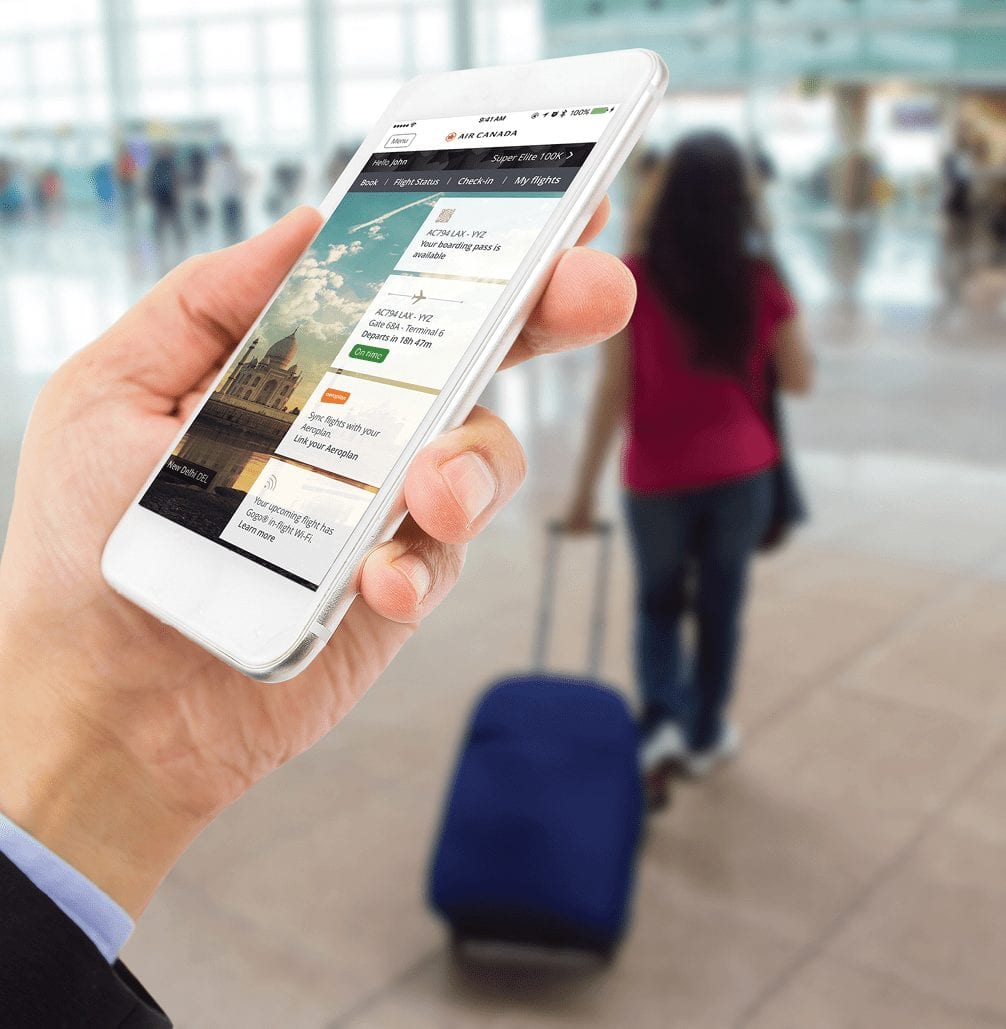
Grâce à notre parc aérien moderne, qui comprend des 787 Dreamliner de Boeing, des 777 de Boeing et des A330 d’Airbus, nos passagers voyagent avec style presque partout où ils vont. Par ailleurs, en 2020, nous deviendrons la première société aérienne canadienne à exploiter l’A220-300 d’Airbus (connu sous le nom de C Series de Bombardier lorsque nous en avons annoncé l’achat). Doté d’un aménagement cabine de pointe et s’avérant moins énergivore que l’appareil qu’il remplace, ce monocouloir moderne nous permettra d’améliorer encore plus notre offre client.
« Nous achevons bientôt de transformer notre parc aérien en l’un des plus récents et des plus modernes en Amérique du Nord. L’A220 renforcera et optimisera notre réseau nord-américain et nous donnera un avantage concurrentiel marqué sur le marché », fait valoir M. Rovinescu.
En 2018, nous avons aidé plus de 50 millions de passagers à parcourir le monde pour vivre des expériences et créer des souvenirs impérissables. Et par l’intermédiaire de Vacances Air Canada, nous concevons des expériences exclusives pour les vacanciers à la recherche de voyages passionnants au Canada et à l’étranger.
Si les clients sont à même de constater ce soin et cette classe chaque fois qu’ils font une réservation et voyagent avec nous, nous continuons de travailler sans relâche en coulisse à la prochaine innovation.
Les nouvelles solutions en matière de réservation et de fidélisation seront mises en œuvre en 2019 et en 2020. Une équipe de professionnels dévoués est affectée à ces systèmes et à ces processus opérationnels complexes et s’attache assidûment à redéfinir nos méthodes de travail. Nos passagers ne remarqueront pas la transition, sauf que bon nombre de nos employés profiteront d’outils plus efficaces, ce qui améliorera l’expérience client.
Par ailleurs, nous travaillons à des programmes d’intelligence artificielle qui feront de nous une société aérienne plus efficace et offrant une meilleure expérience client. Par exemple, certaines initiatives liées à l’intelligence artificielle permettront de mieux simuler les répercussions des conditions météorologiques. Ainsi, notre Centre de contrôle de l’exploitation réseau sera outillé pour gérer les activités quotidiennes de façon plus proactive, en remaniant les horaires lorsque du mauvais temps s’annonce.
De plus, nous faisons partie de l’Initiative des supergrappes d’innovation dans le cadre du consortium SCALE AI à Montréal. Cette supergrappe se consacre à bâtir la prochaine génération de chaîne d’approvisionnement et à améliorer la performance des entreprises canadiennes par l’utilisation de technologies fondées sur l’intelligence artificielle.
Nous croyons que l’intelligence artificielle devra constituer l’une de nos capacités fondamentales et nous nous appliquons à devenir un chef de file mondial dans ce domaine au sein de l’industrie du transport aérien.
En 2019, Air Canada Cargo commencera à tirer parti de l’intelligence artificielle pour optimiser la gestion de la capacité et garantir une livraison en toute sécurité des marchandises de sa clientèle. Avec ce nouveau système, notre division de fret optimisera la préparation des palettes chargées à bord des appareils et automatisera ses fonctions de facturation et de vérification.
Plusieurs autres projets sont à l’étude à Air Canada, qu’il s’agisse de l’optimisation du traitement des bagages ou de l’amélioration des prévisions liées aux retards de vols – tout cela, en vue d’offrir une expérience client exceptionnelle.












